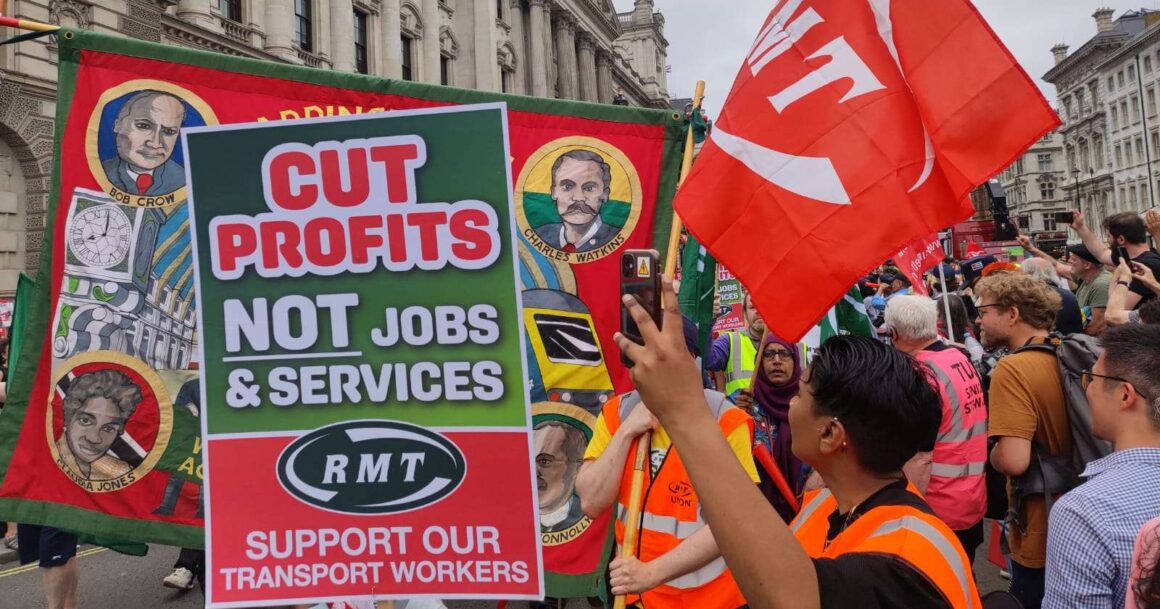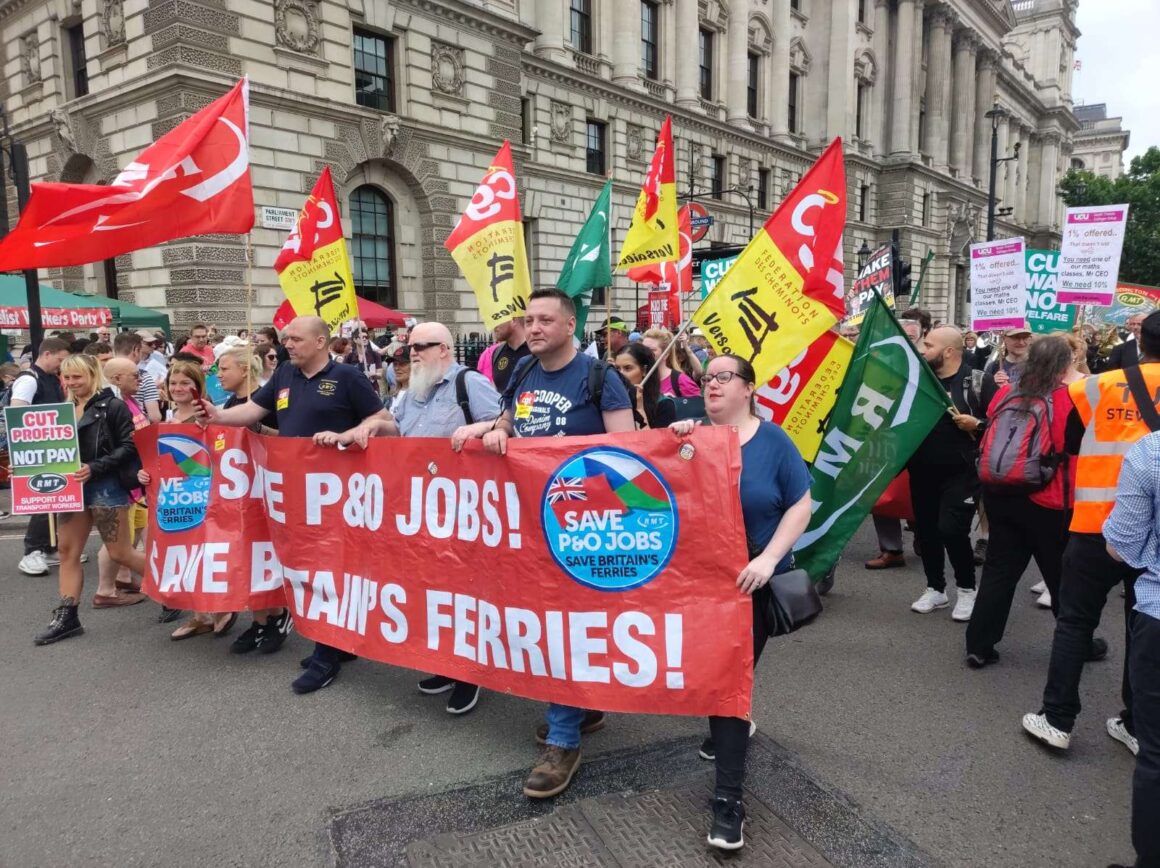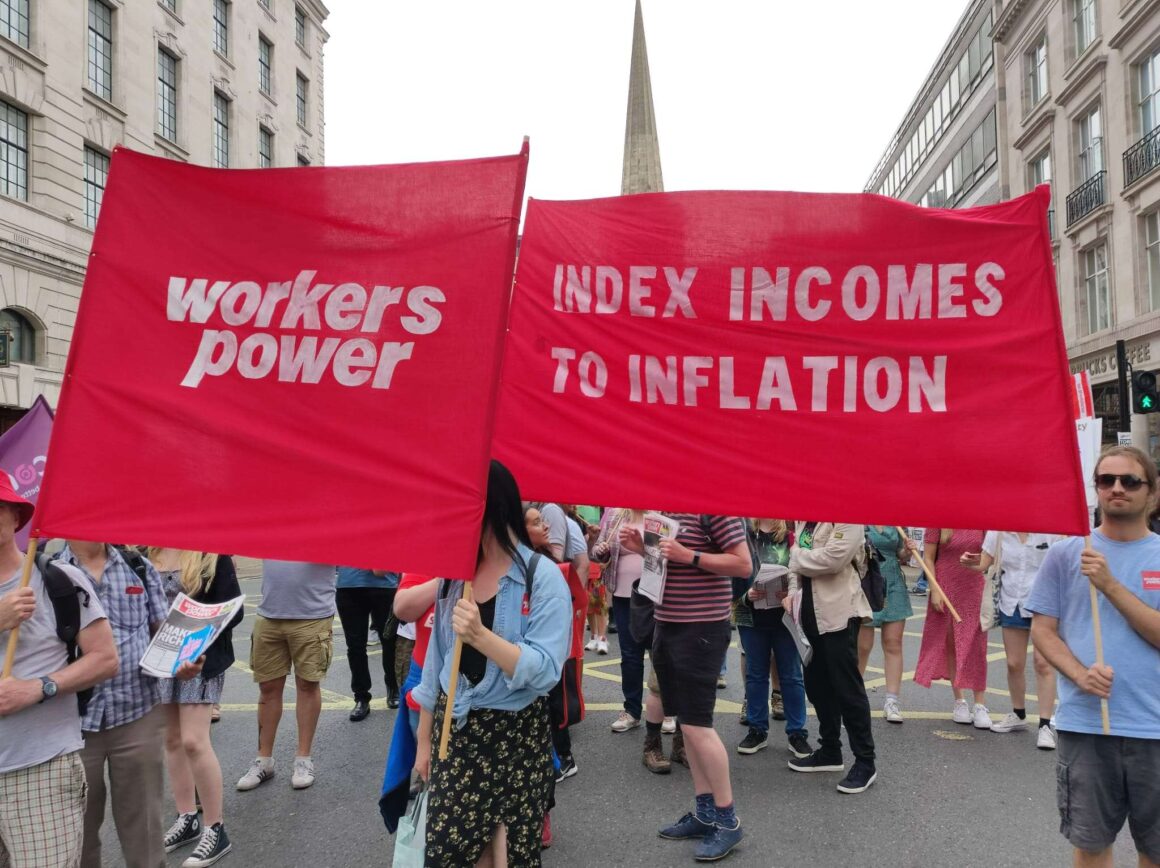

By KD Tait
ON SATURDAY 18 June, tens of thousands of people marched through central London to demand action to fight the growing cost of living crisis.
Protesters gathered from across the country in the first national demonstration called by the TUC since 2018, calling for pay rises to beat inflation, better working conditions, and tax rises for the rich to fund education, health, and environmental reforms.
Railway workers in the RMT union who will be striking over three days this week received huge cheers on arrival at the rally in Parliament square. Teachers and postal workers who are preparing for action mobilised large contingents, as did many other unions across the public and private sector.
Trade union leaders called for united action to win pay increases that keep pace with inflation. Unite general secretary Sharon Graham said: ‘Workers have had enough. The trade union movement needs to be reborn. We need to act together.’
Mark Serwotka, general secretary of the PCS, whose civil service members face 90,000 job cuts, said: ‘If we all work together, march together and take industrial action together, we can get the pay rise we deserve’.

Ahead of the march, nurses’ union the Royal College of Nursing pointed out the effect that more than a decade of real terms’ pay cuts has had on staffing levels and the wellbeing of patients. With thousands of nurses struggling to feed their families or even fill up their cars to get to work, the union is calling for upcoming NHS pay deals to not only match inflation, but for 5 per cent above it.
On Sunday, the Financial Times reported on the growing concern in government about the risk of pay restraint triggering a wave of industrial action. A cabinet minister said: ‘If we get this wrong, we risk going into a de facto general strike that will create further turmoil that risks grinding the whole economy to a halt.’
This week, 40,000 members of the RMT will stage three 24-hour strikes against proposed job cuts and for pay rises that keep pace with inflation. The government, which controls the money, has refused to negotiate. They know that isolating and defeating the RMT will break the momentum of upcoming public sector pay ballots. That’s why it’s vital that activists mobilise the widest possible support for the strike: visit picket lines, expose the government’s lies, and campaign for solidarity among the public.
Rebuild our movement
The demonstration showed workers are determined to prevent pay, jobs and living standards being cut to protect the employers’ profits or balance the government’s books. Activists need to organise now to turnout large votes for action in upcoming pay ballots. But mandates and one-day strikes will not be enough to win.
Our movement is on the defensive. At British Gas and P&O, the bosses have imposed big defeats on well-organised sections of workers. Saturday’s demonstration was the largest for many years — but it could have been bigger. Despite the efforts of grassroots activists, promotion of the demonstration by the TUC and some unions was lukewarm at best.
RMT general secretary Mick Lynch challenged Labour to ‘stand up and fight with us or get out of the way’. But Keir Starmer, leader of the party to which most TUC unions are affiliated stayed away. Blairite leadership contender Wes Streeting, who recently apologised to the shadow cabinet for publicly supporting the strikes, posed for selfies with TUC general secretary Frances O’Grady.

We must learn the lessons from the 2011 pensions’ dispute which saw two million workers walk out in the biggest strike for decades — only for the TUC and Unison to agree a rotten sell-out with the coalition government.
To win real pay rises for tens of millions of low paid workers, to cap bills and rents, to prevent inflation eroding our pay, we need to rebuild the labour movement from the ground up:
We need a campaign of coordinated, escalating strike action to fight for a workers’ answer to the crisis: